Computer science in the context of history, culture and society
Computer science is a young science that builds on old ideas. Friedemann Mattern has taught this for more than seven years in his computer science lecture for electrical engineering students. With his retirement, an era comes to an end.
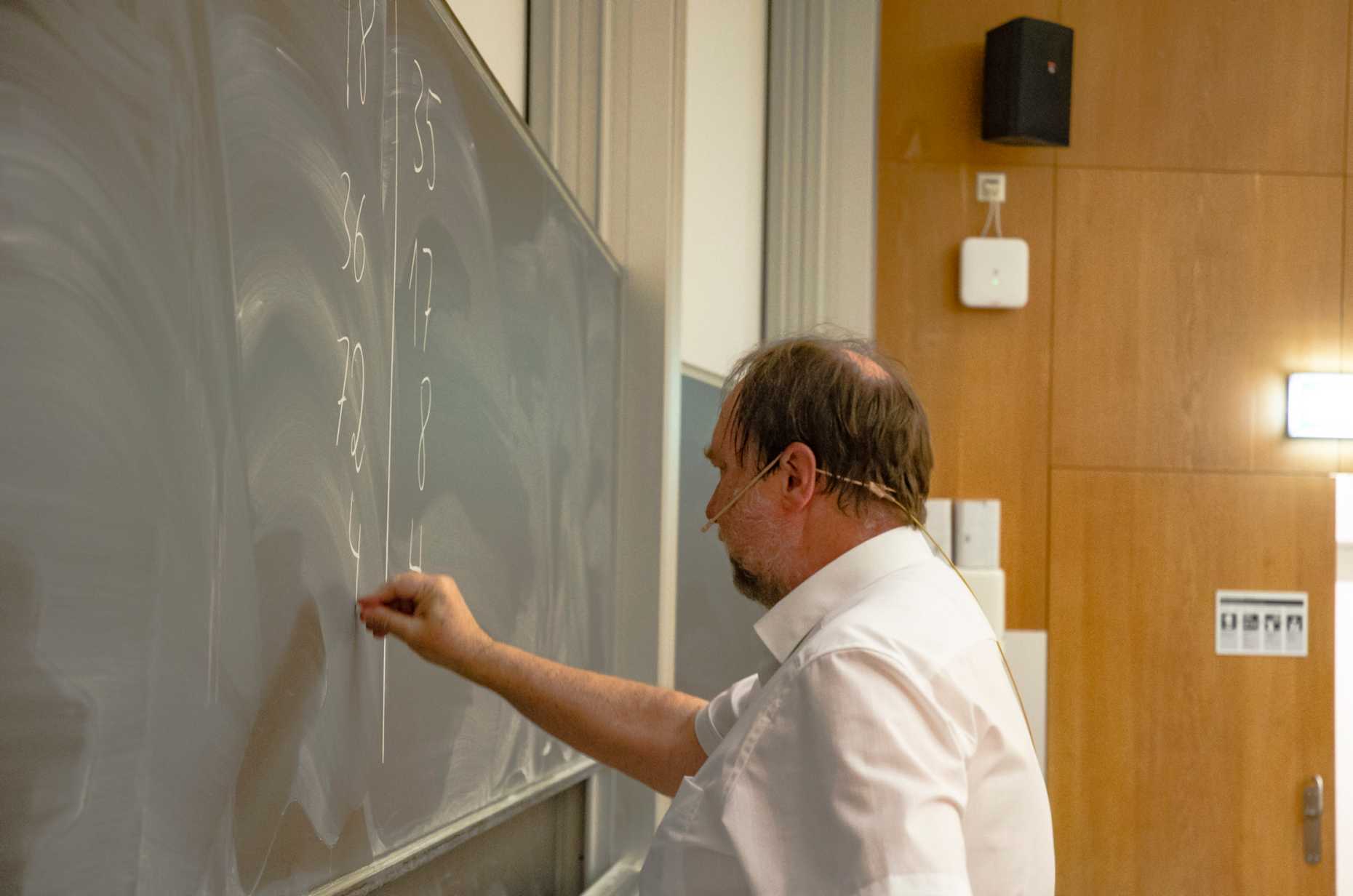
On a Thursday morning in September, Friedemann Mattern, a professor in the Department of Computer Science, writes the numbers 18 and 35 on the blackboard. Following seemingly arbitrary rules, he doubles, halves, crosses out and adds them, as more than 100 students watch in fascination. Finally, he is left with the number 630 – the product of 18 and 35. Several students check the result on their mobile phones. It is correct.
This multiplication method, which looks like a magic trick, is an algorithm. Its validity can be proven mathematically – and it is seemingly made for implementation with a computer program; an ideal case study in which to introduce students of electrical engineering to the Informatik II lecture. Surprisingly, the method, known as ancient Egyptian multiplication, is more than 3,500 years old. Mattern wants to teach students not only the principles of computer science, but also its historical, cultural and social context. “Behind many of the basic principles of computer science lie centuries-old ideas,” he says.
Teaching how to think
Informatik II is a subject in the third semester of the Bachelor in Electrical Engineering and Information Technology that teaches prospective electrical engineers the basic concepts of computer science and programming with Java. Ancient Egyptian algorithms are not normally part of the curriculum; however, since 2013, the lecture has been part of the “Critical Thinking ETH” initiative, which promotes interdisciplinary exchange, critical thinking and responsible action. “I have always made occasional comments on the history and social impact of computer science. When the Critical Thinking initiative asked departments to incorporate critical thinking into a few selected lectures, I volunteered,” Mattern recalls.
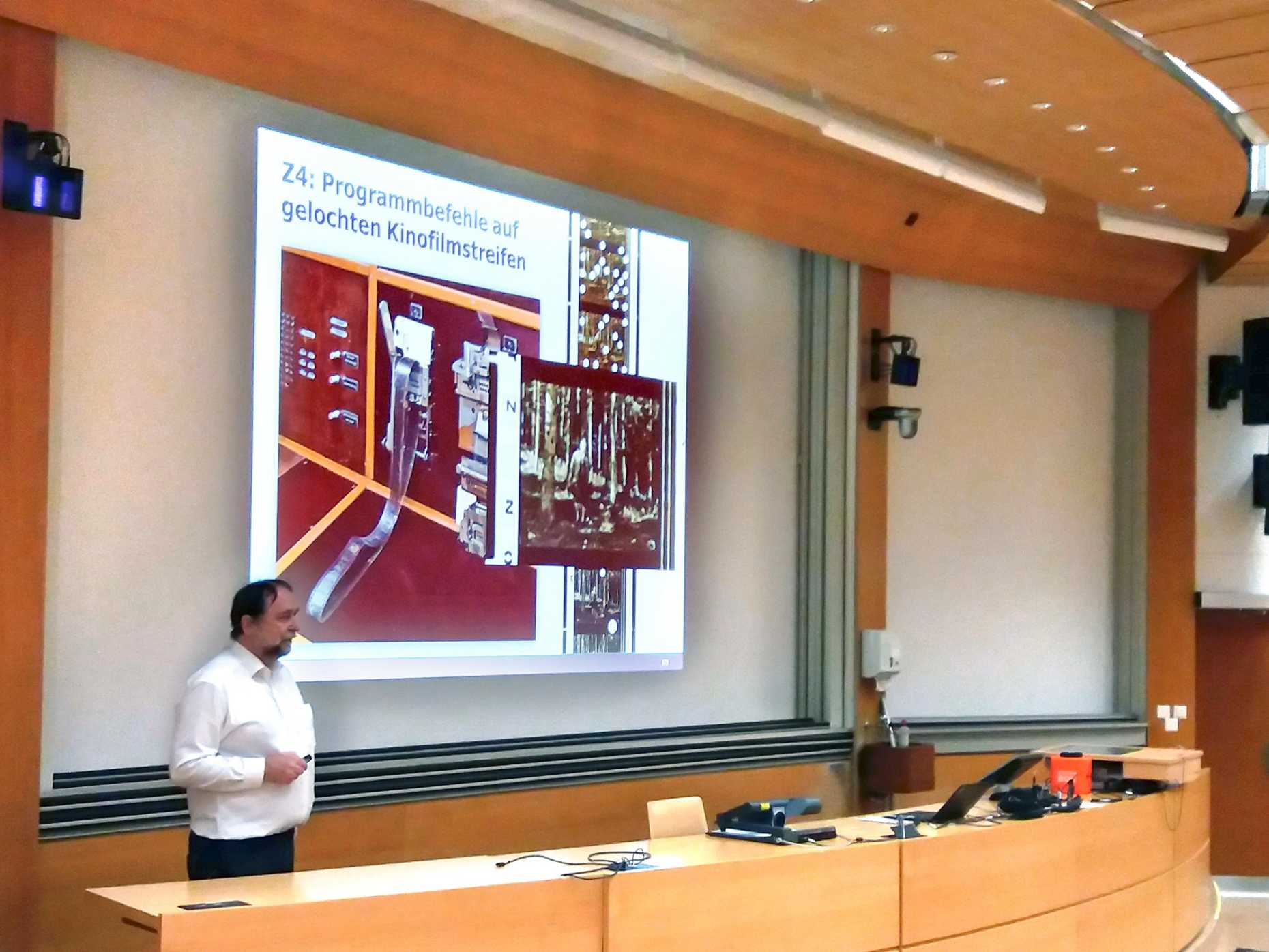
How does one teach critical thinking? “You cannot learn it by memorising facts,” says the professor. “Rather, it’s a process you can encourage by exposing students to different ideas and ways of thinking.” That’s a tall order for a weekly two-hour lecture that is considered a secondary subject by many electrical engineering students. And so Mattern spends only a few minutes a week on historical and cultural excursions.
At the heart of the lecture are the slides, which are available to the students for self-study. In addition to the content covered in the lecture, they contain almost 2,000 color-coded bonus slides. Mattern has compiled a wealth of additional information over the years, from the origin and meaning of the words “algorithm” and “informatics” to portraits of influential mathematicians, in-depth technical information, examples of real-world applications and famous programming errors.
The bonus slides are not part of the exam – reading through them is optional for the students, who can skip them with a single click if they so choose. Mattern is aware that only a minority of the students engage with the bonus material. Nonetheless, the effort is worth it to him. “As lecturers, we have to offer something to those students who are willing and able to do more than what’s in the curriculum. It doesn’t matter whether they are a mathematical genius or simply someone with a deeper interest in the subject,” he says.
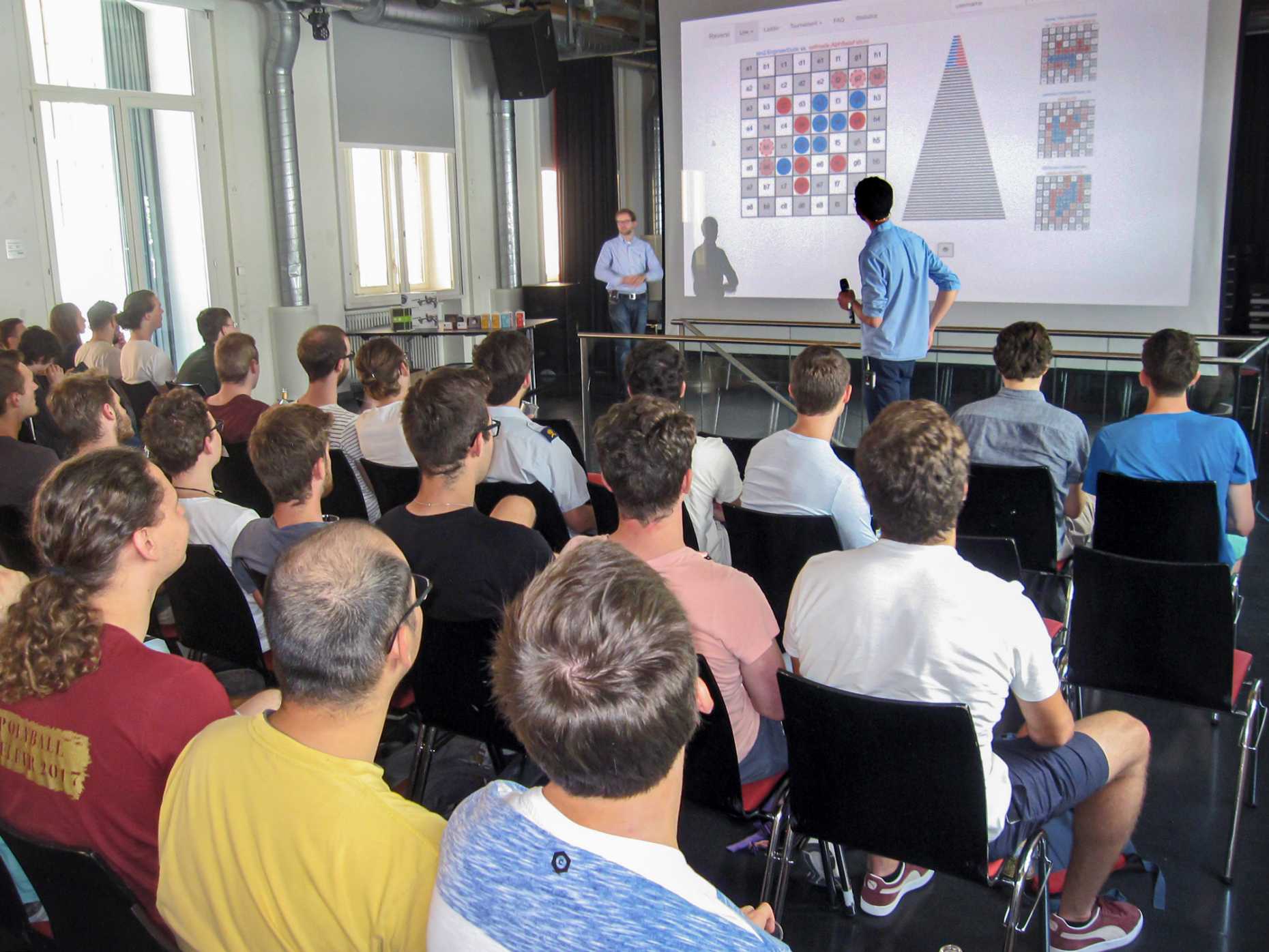
Mattern also cultivates this commitment to the particularly interested minority of students outside the Critical Thinking Initiative. For example, the Informatik II lecture has been accompanied for many years by a voluntary programming exercise in which students work in small groups to program an agent for the board game Reversi. At the end of the semester, these virtual players compete against each other in a small tournament.
Opinions are divided
Over the years, Mattern has received a lot of feedback from students, both appreciative and critical. “Some react with annoyance to the supplementary material,” he says. “Often, students ask for a version of the slides without the bonus slides. It’s like taking a textbook and tearing out the pages that don’t interest you.” Occasionally, the content itself creates a stir. “The historical images and expressions can come across as negative or discriminatory from today’s perspective,” Mattern admits. “But we can’t stop talking about history because of that. I also want to show students that values and morals are not absolute, but change over time.” Encountering differing values is part of critical thinking, he explains to students on the three-page disclaimer at the beginning of the slides.
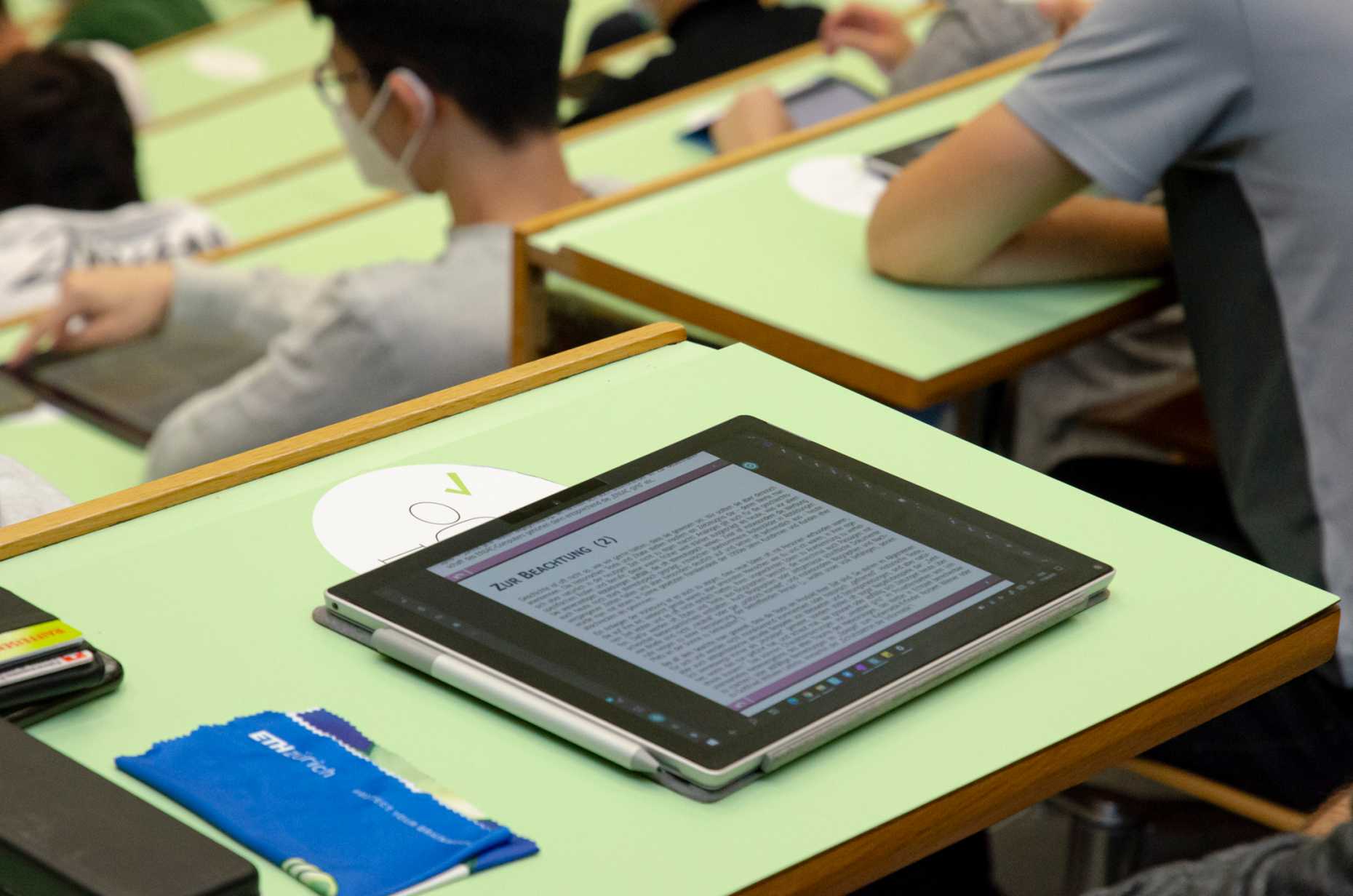
Among Mattern’s teaching assistants, who attended the lecture themselves a few semesters ago, opinions are divided. “I found some of the bonus slides very interesting, but there are too many,” says Pascal Schärli, a first semester Master’s student. Julia Gygax, another Master’s student, never looked at the bonus material while studying at home. “But I sometimes became engrossed in it during the lecture and missed what Professor Mattern was saying,” she says with a laugh. “Some facts definitely stuck with me.” For Michael Roth, a teaching assistant in the fifth semester of his Bachelor’s degree, the bonus slides didn’t work at all. “They were amusing during the lecture, but there’s no time for that when you’re studying,” he says. “After all, we have to pass the exam, so unfortunately our interest in the subject has to take a back seat.”
Christelle Gloor, now a doctoral student in the Department of Computer Science, had a very different experience. “The bonus slides were a welcome break from studying,” she says. “They give context about the importance of what you’re learning and the impact it can have in the real world.” Gloor enjoys learning more in her free time, for example by reading books recommended by faculty members such as Mattern. “I find it enriching – and if nothing else, the material makes great conversation starters for parties,” she jokes.
No time to think critically?
An understanding of the context is particularly important in computer science, says Mattern: “Technology has always changed society. Today, however, computer science directly affects each and every one of us. We carry our smartphones with us all the time, globalisation would be inconceivable without computer science, and ideas from computer science are widely discussed in society today, often detached from their technical context.”
"Computer science directly affects each and every one of us."Prof. em. Friedemann Mattern
However, the professor also understands the critical attitude of many students. “I firmly believe that it is the responsibility of universities to teach more than just specialist expertise,” he says. “But that is clearly at odds with the fact that specialist knowledge is becoming ever more extensive.” Today’s higher education is increasingly competitive – with competition for grades, exams, good jobs, he says. “The goal set by the Critical Thinking Initiative remains an ideal that is unlikely to be achieved,” he admits. “Nevertheless, one can and should try to get closer to that ideal.”
The 65-year-old professor has been interested in the larger context of things since he was a child. School did much to encourage and sharpen his thinking. He is convinced that he has benefited from this throughout his life, both privately and professionally, and it makes him all the happier when he receives positive feedback on his lectures and bonus slides. “It’s a big effort for only a small number of students, but I would do it all over again,” he says.
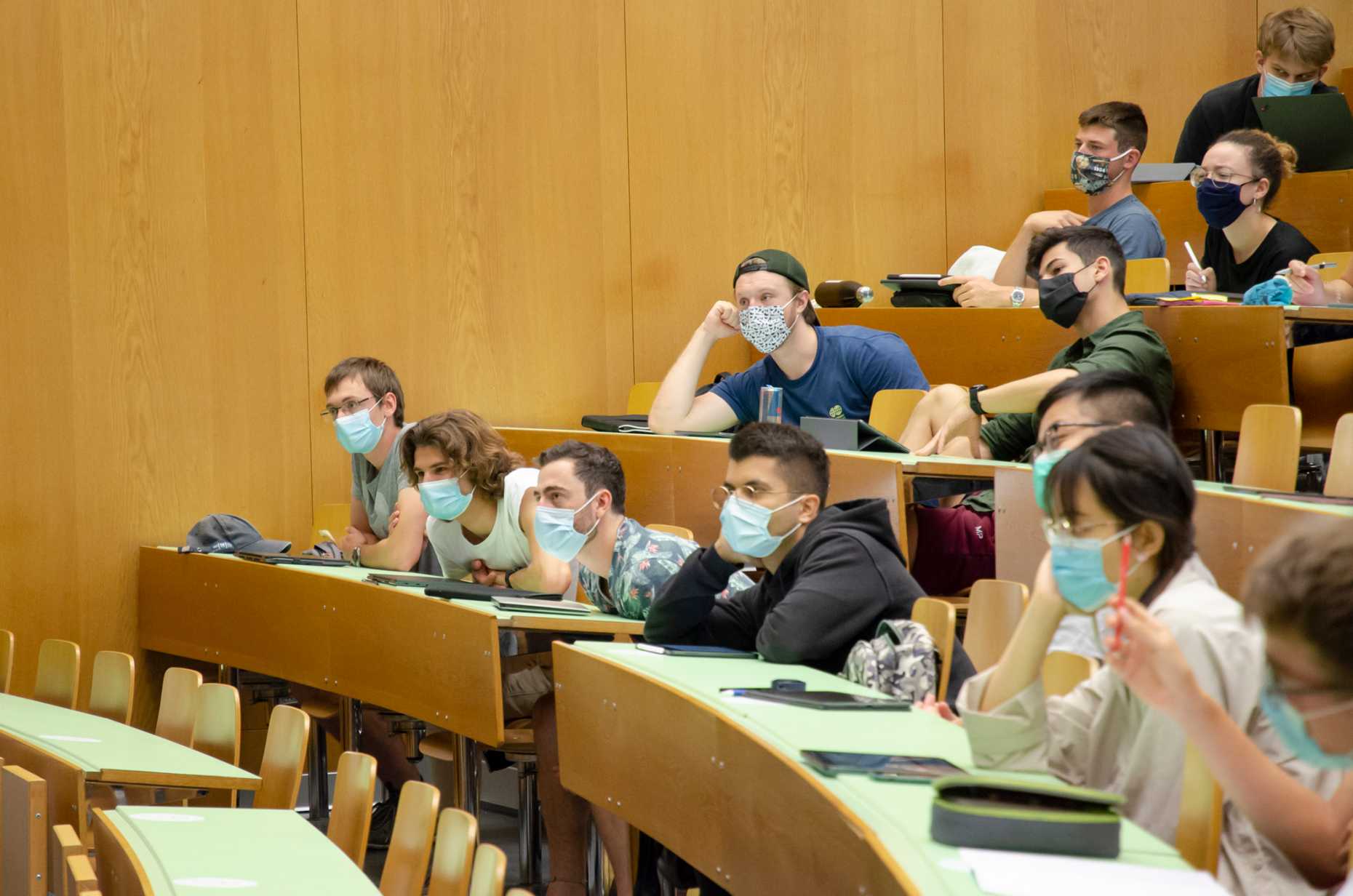
Mattern retired at the end of July 2020 and gave the Informatik II lecture for the last time in the autumn semester of 2020. It is not yet clear who will follow in his footsteps. However, the critical thinking part is likely to be discontinued; the extra time and effort involved is too great. Mattern takes this with a certain amount of equanimity: “Of course I regret that the lecture is changing. But it is now time for other people to approach these topics with a fresh perspective.”
The professor is much more regretful that the pandemic made the last run of the lecture so difficult. “I would have liked to have improved it one last time, as I have done over the years,” he says. Instead, parts of it had to be greatly reduced. But at least about half his students were able to sit in the lecture hall at the beginning of September and watch in fascination how a seemingly bizarre algorithm can be used to multiply two natural numbers. Unfortunately, only a short time later, Informatik II – along with all other lectures at ETH Zurich – had to move entirely online.
